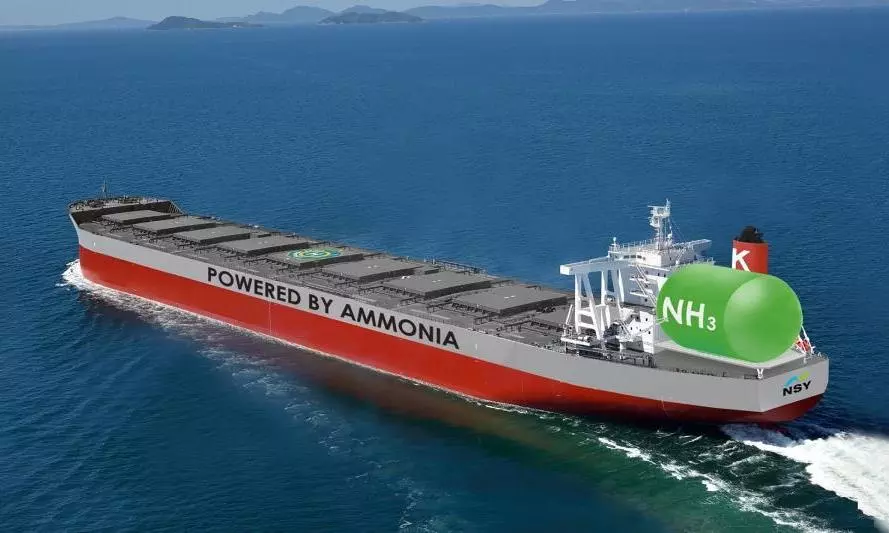K Line to launch ammonia-based ship service in 2026
K Line revised its long-term environmental guidelines in Nov 2021 with a new goal of 2050 for net zero GHG emissions.

(Credit: K Line)
Kawasaki Kisen Kaisha (K Line), together with ITOCHU Corporation, Nihon Shipyard, Mitsui E&S Machinery and NS United Kaiun Kaisha, have obtained an Approval in Principle (AiP) from Classification Society, Nippon Kaiji Kyokai for the design of an ammonia-fuelled ship (200,000 deadweight ton class bulk carrier).
"The vessel, which recently received an AiP, was developed by Nihon Shipyard as the part of the Integrated Project for the Development and Social Implementation of Ammonia Fueled Ships, which was jointly adopted by the Green Innovation Fund Project / Development for NextGeneration Ships / Development of Ammonia Fueled Ships" of the New Energy and Industrial Technology Development Organization (NEDO) ," says a release from K Line.
( From left ) Hiroyuki Tsubai, Senior Managing Executive Officer, ITOCHU Corporation, Ichiro Tanaka, President & CEO, Mitsui E&S Machinery, Hayato Suga, Executive Vice President, Nippon Kaiji Kyokai, Kiyoshi Higaki, Vice President, Nihon Shipyard, Masatoshi Taguchi, Managing Executive Officer, Kawasaki Kisen Kaisha and Toru Fujita, Managing Executive Officer, NS United Kaiun Kaisha.
There are no international guidelines for the use of ammonia as marine fuel, the release added. "So K Line and partners are looking toward obtaining Alternative Design Approval for the shipbuilding of the vessel. A risk assessment (Hazard Identification Study) was recently conducted on the safety of using ammonia as marine fuel, and the basic design of the vessel was evaluated as "capable of ensuring the same level of safety as ships operating with existing fuel."
K Line and partners will proceed with the development, and aims to take delivery of the vessel and begin social implementation in 2026, the release added.
K Line had revised a part of its long-term environmental guidelines in Nov 2021, and has set a new goal for 2050 to achieve net zero GHG emissions, the release said.



